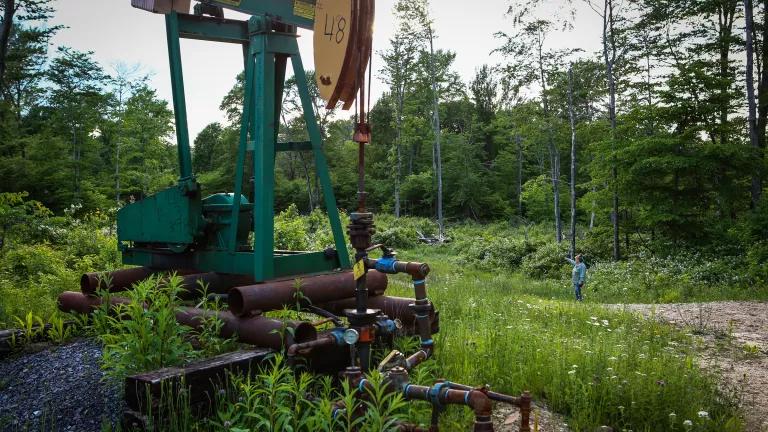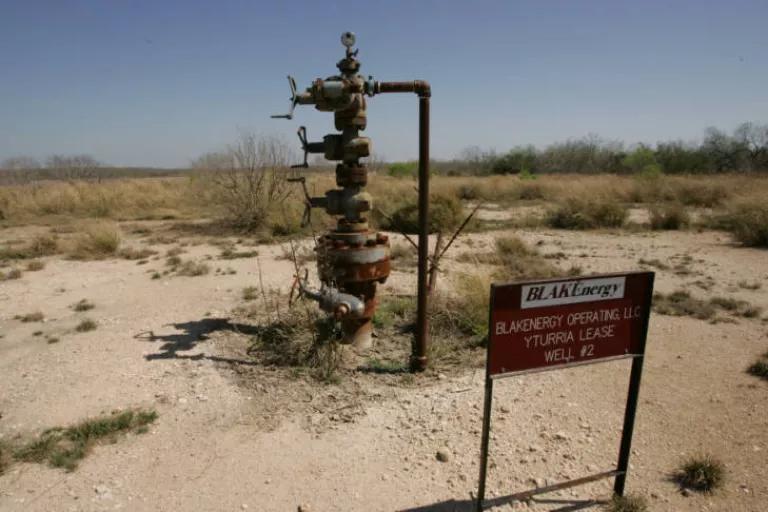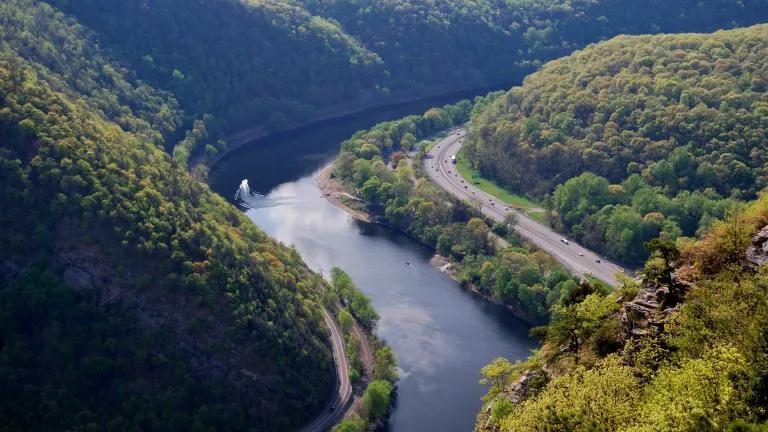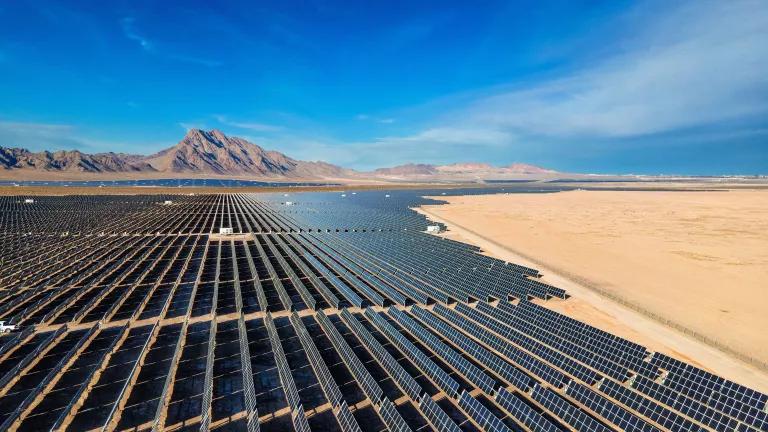Jobs, Health, Climate: Plugging Wells, Making Polluters Pay
For more than 100 years, the oil and gas industry has been drilling wells across the nation and then, as often as not, walking away. Today Congress took a major step toward fixing that problem.

Laurie Barr, cofounder of Save Our Steams Pennsylvania, searches abandoned oil wells for pollutants as an old pumpjack stands in the Allegany National Forest in Pennsylvania. In Pennsylvania, abandoned oil wells have long been part of the landscape.
Orphaned oil and gas wells sound like a problem that exists far away from where most people live—out in the oil fields of Texas or North Dakota or New Mexico. But they can be found nearly everywhere. Just ask Los Angeles residents. Multiple incidents over the years have led to explosions and fires erupting amid residential areas. Or consider the horrific basement explosion in Firestone, Colorado, where failure to appropriately plug old gas lines led to the death of two men and the destruction of two homes.
And unexpected, incinerating fireballs aren’t the only risk. Unplugged oil and gas wells and the chemicals they leak into the air near people’s homes have been tied numerous harmful health effects. It’s a problem that’s known, but not well documented, leading to people abandoning their ways of life for fear that whatever is coming out of these sites might do them serious harm.

An abandoned gas well. Interior has proposed to destroy records related to oil and gas wells after operation, when they still present a risk of contamination.
The Biden administration’s Build Back Better agenda confronts this public health and climate catastrophe head on with investments that will create jobs, end dangerous pollution, and help advance the fight against climate change. And part of that agenda includes the Build Back Better Act and the bipartisan infrastructure bill which passed the House today. Within those bills are two provisions that are key to addressing this problem. First is a $4.7 billion job creation package aimed at creating tens of thousands of good-paying jobs for people to begin the task of finding and sealing off orphaned oil and gas wells. And second is a change to liability coverage—a.k.a. “bonding”—that will help ensure that oil and gas companies operating on federal lands have the money on hand to clean up spent oil and gas wells when they’re done, instead of passing the buck to taxpayers.
Why do we need these investments today? Because unplugged orphaned oil and gas wells span the country, and are not only a public health nuisance, but also a major source of methane—an extremely potent greenhouse gas—leaking into the atmosphere. Indeed, methane emissions from these wells are, cumulatively, the 10th largest source of annual methane emissions in the U.S. That means getting them under control will be key to any effort to reign in climate change.
It is well past time to hold the oil and gas industry accountable for the burdens its century-long legacy of drilling has left in its wake. Communities across the country deserve to see these threats identified and remediated, and to enjoy the cleaner air and water that will follow. And moving forward, industry must not be allowed to continue passing the buck on its extraordinary liabilities until U.S. taxpayers are suddenly left with the bill. The Build Back Better agenda begins this work and maps out the types of investments and changes we can make that will create new jobs ideally suited for oil and gas workers cleaning up this mess, end climate-harming methane emissions, and make communities across the country safer places to live and work.




